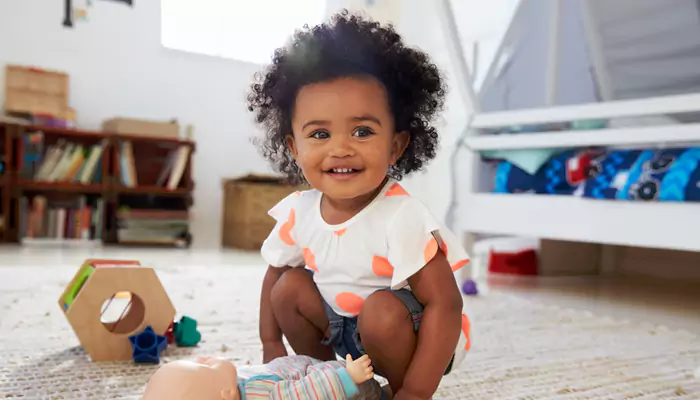Tiny Tot Tenders – A Holistic Guide To Childcare
Childcare is an intricate tapestry of nurturing, teaching, and guiding young minds and hearts.
- Ishani Karmakar
- 23 January, 2024
- 2 mins ago

Tiny Tot Tenders – A Holistic Guide To Childcare
Childcare is an intricate tapestry of nurturing, teaching, and guiding young minds and hearts.
Let’s explore the concept of holistic childcare, a method that goes beyond basic needs to encompass the entire spectrum of a child's development. Through a blend of factual insights and practical experiences, this guide will serve as a comprehensive resource for parents, educators, and anyone involved in the care of young children.
The Essence of Holistic Childcare
Holistic childcare is based on the philosophy that every aspect of a child's being – physical, emotional, intellectual, and social – is interconnected and equally important. This approach recognizes the individuality of each child, catering to their specific needs while fostering a balanced and comprehensive development.
Core Elements
Physical Health
This encompasses not only physical growth but overall well-being, including nutrition, exercise, and rest. For instance, the Centers for Disease Control and Prevention (CDC) emphasizes the importance of physical activity in children, linking it to improved academic performance and better health outcomes.
Emotional Nurturing
Emotional development is crucial in building self-awareness, empathy, and resilience. A supportive environment allows children to express their feelings and learn to manage them effectively. Studies show that emotional well-being in childhood lays the groundwork for a healthy mind in adulthood.
Cognitive Stimulation

This involves nurturing the child’s curiosity, creativity, and problem-solving skills. Engaging activities and interactive learning are key in stimulating intellectual growth. The latest research in developmental psychology underscores the impact of early cognitive development on future learning and success.
Social Interaction
Social skills are vital for successful interaction with others. Through play and cooperative activities, children learn valuable lessons in communication, teamwork, and empathy. The National Institute of Child Health and Human Development notes the long-term benefits of social skills learned in early childhood.
Advancing Holistic Childcare Practices
Inclusive Environments
Spaces should be safe, welcoming, and conducive to exploration and learning. Diversity in toys, books, and materials reflects the world's varied cultures and experiences.
Comprehensive Curriculum
A well-rounded curriculum should include arts, sciences, physical activity, and emotional learning, promoting an all-encompassing development.
Diet and Nutrition
A balanced diet is crucial for physical and cognitive development. Integrating a variety of nutritious foods encourages healthy eating habits from an early age.
Mindfulness and Emotional Intelligence
Teaching mindfulness and emotional intelligence helps children in understanding and regulating their emotions, a skill beneficial throughout their lives.
Engagement of Families
Parental and familial involvement is crucial. Regular interactions between caregivers and families ensure a consistent and supportive approach to childcare.
Overcoming Challenges
Holistic childcare, while ideal, is not without its challenges. Limited resources, inadequate training, and societal misconceptions can hinder its implementation. To address these, increased funding, ongoing professional development for caregivers, and public education about the benefits of holistic approaches are necessary.
The Future of Childcare
As we move forward, the importance of a holistic approach in childcare cannot be overstated. By investing in comprehensive development strategies, we are not only enhancing the lives of individual children but are also contributing to the betterment of society as a whole. The future, after all, lies in the hands of our youngest generation.
Holistic childcare is an art and a science, requiring dedication, creativity, and a deep understanding of the multifaceted nature of child development. By embracing this approach, we can nurture not just more competent and knowledgeable individuals, but also more compassionate and well-rounded human beings. This guide offers a path towards a more nurturing and effective approach to childcare, one tiny tot at a time.






